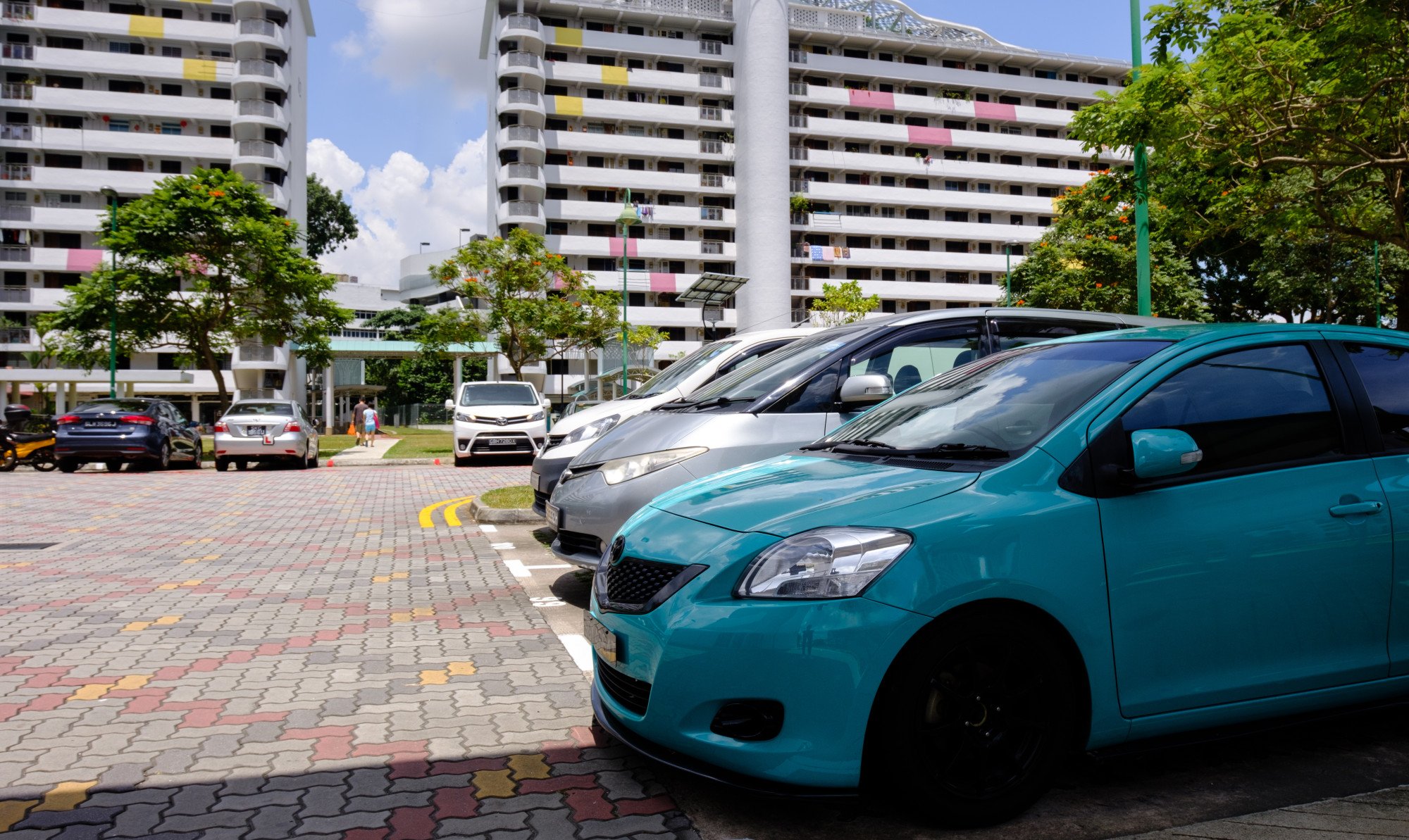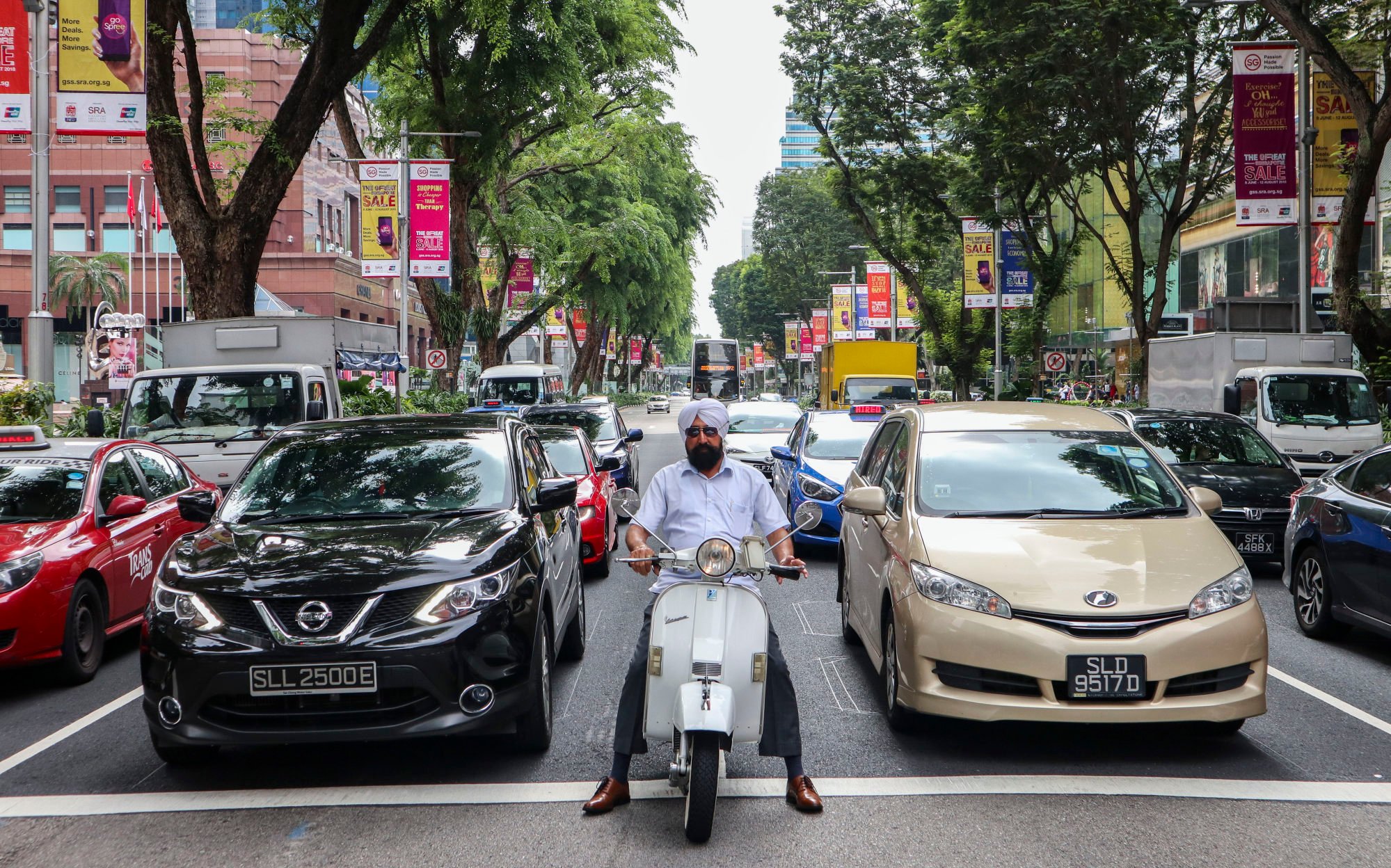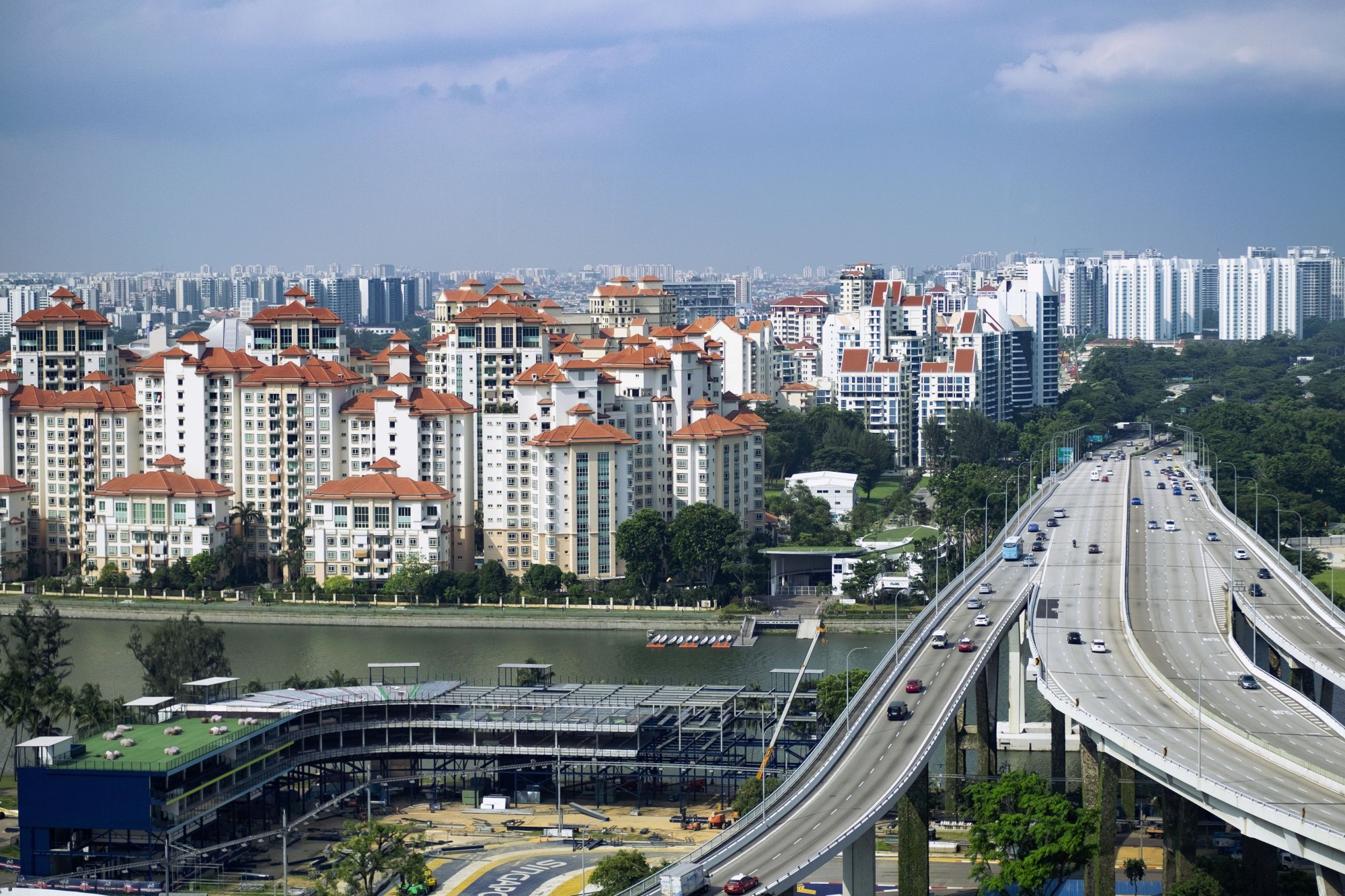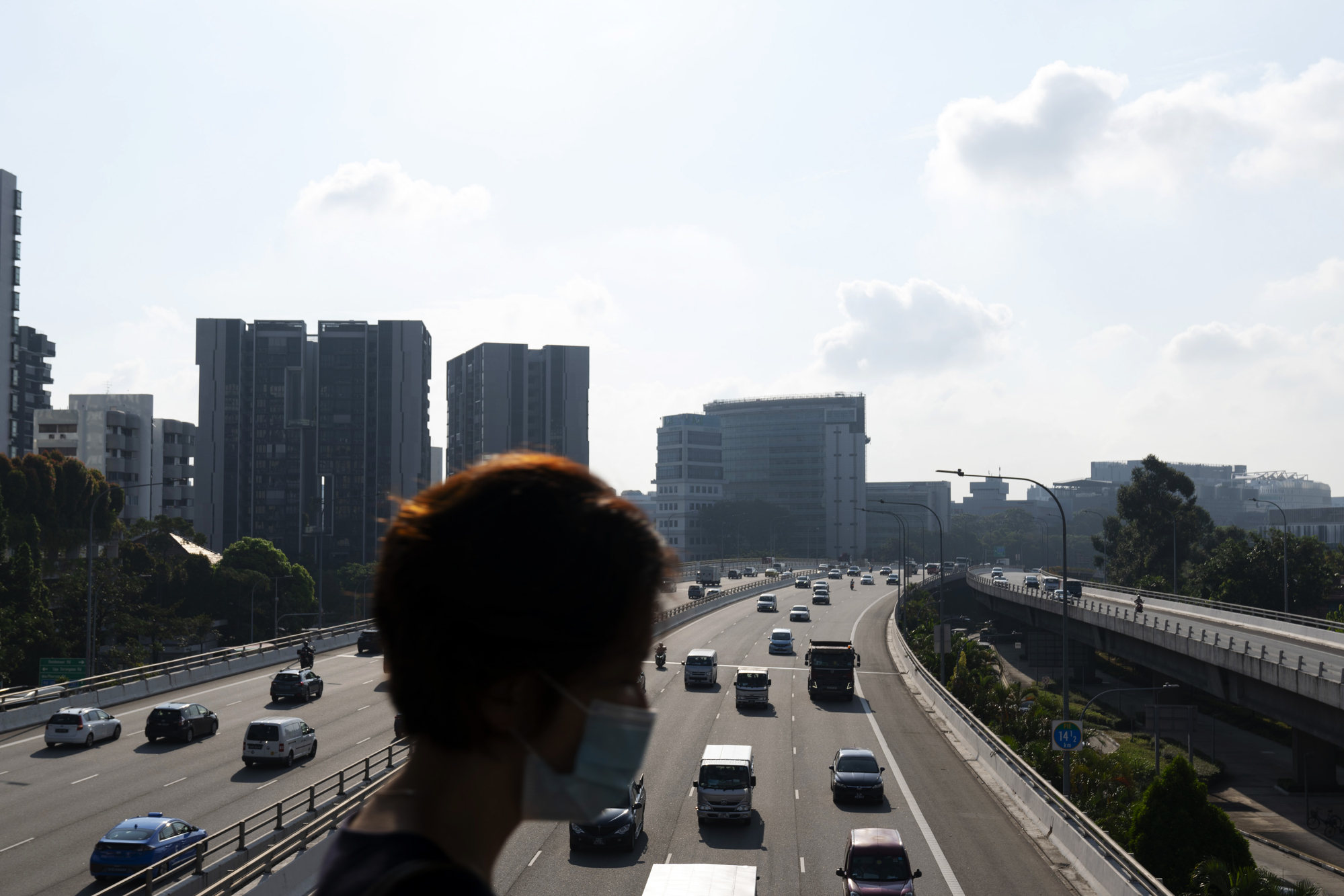Is Singapore’s COE system due for ‘significant reforms’ as car prices reignite debate?
[ad_1]
“The debate risks going around in circles with the same points being raised repeatedly about making the system fairer, for example, by giving preference to those who really need a car or restricting it to one per household. None of these will work because the people suggesting it want prices to come down, which they will not,” Han Fook Kwang, a veteran newspaper editor, wrote in a commentary for broadcaster CNA in September.
“If you don’t like this outcome, there is only one solution: scrap the certificate of entitlement system.”
‘US$150,000 on a Corolla?’: Singapore drivers park car dreams as costs surge
‘US$150,000 on a Corolla?’: Singapore drivers park car dreams as costs surge
In Singapore, every motorist or dealer who wants to own a vehicle must bid for a COE, a permit introduced in 1990 to limit the number of vehicles on the road. Each certificate is classified based on the vehicle type and is valid for 10 years. The transport authority controls the number of COEs available, announcing the quota every quarter.
Prices of the permits have risen sharply across all categories in the last year, with two categories surging to more than double the nation’s median annual income. While the figures have since dipped in the latest round of bidding – the bid for a small-car COE closed at S$65,010 at the tender on January 4 – analysts are sceptical that the costs of car ownership will remain at current levels.
Victor Kwan, a former director of an automotive business, said grouses about the COE market are “cyclical”.
“I have seen two complete cycles over the last 20 years and criticism [about the COE system] comes and goes,” said Kwan, a lecturer at the Singapore University of Social Sciences.
Since 2014, the government has been pushing for a so-called “car-lite” society by expanding the public transport system, providing alternative modes of transport and controlling the usage and population of vehicles, including through the COE system.
Singapore has adopted a zero car-growth policy, which was introduced to manage congestion in the compact 719km² city state and effectively limits the number of ownership certificates available for bidding to the number of deregistered vehicles.
An update to the decades-long road pricing system based on a global navigation satellite system – known as the Electronic Road Pricing 2.0 – also gives policymakers an opportunity to refresh how they control road congestion, transport analysts say.

Many Singaporeans have begrudgingly accepted high car premiums as the price to pay for smooth traffic and clean air. The city state’s public transport system has also scored well in affordability and efficiency, according to a 2021 McKinsey study on urban transport systems in 25 cities, which has helped many locals forgo their car-ownership aspirations.
Nonetheless, car ownership becomes a divisive issue each time COE premiums surge, with one observer noting that it was important for officials to keep prices “relatively stable”.
“When prices increase, those looking to buy new cars will be unhappy and complain. But when COE prices drop, current car owners will complain as the values of their used cars drop in tandem. So it is in the government’s political interest to keep prices relatively stable,” Kwan said.
The government is aware of these concerns even as it stoutly defends the COE system. In November, it brought forward some of the COE quotas from deregistrations in peak years in a bid to stabilise the market.
“We are effectively … borrowing from the future,” acting Transport Minister Chee Hong Tat said in parliament in November. “That is also why … we have to be quite calibrated and not overdo this cut and fill because there will be downsides in the short term.”
There is no alternative … but for the government to make significant reforms to the COE system
The move was aimed at smoothing out price fluctuations but had instead “paradoxically” contributed to the significant drop in COE prices recently, said Jake Ler, chief marketing officer of online automotive platform Motorist Singapore, noting that it had also sparked renewed interest in car purchases.
Still, Ler added: “Despite the immediate market disruptions, the government’s strategy may still be sustainable in the long term, as it seeks to balance market stability with the upcoming increase in COE availability.”
Earlier this week, Chee said in an interview with Chinese-language newspaper Lianhe Zaobao that the government might introduce a new COE category for cars owned by private-hire vehicle fleet operators – the latter group of bidders was cited by some as a reason for the recent strong demand for COEs. Chee, however, told parliament in November that private-hire cars were unlikely to be the main group driving up COE prices.

A political observer described the potential shift in the government’s stance as “an effort to appease” the population without directly addressing the root of the problem, stressing the need for a major revamp of the system sooner rather than later.
“There is no alternative, in my view, but for the government to make significant reforms to the COE system, which is perceived to be lacking in fitness of purpose,” said Eugene Tan, a law professor from the Singapore Management University.
He added that the existing COE system had added fuel to “the sense of inequity in some quarters” of society and narratives of costs of living outpacing wage increases.
The government could introduce more drastic changes to the system soon after this year’s budget on February 16, Tan predicted, drawing parallels to the authorities’ “deliberate moves to tamp” down red-hot demand in the housing market over the past two years.
“Time is of the essence,” he said, suggesting that the move needed to happen before the country heads to the polls, due to be called by November 2025 but widely expected to take place this year.

An elitist system?
Many long-term policy alternatives have been raised by policymakers from both sides of the political divide.
One non-constituency opposition lawmaker from the Progress Singapore Party suggested a “points-based system”, which would take into account factors like a bidder’s family background or disabilities when allocating vehicle quotas, or the implementation of additional levies for those purchasing more than one vehicle.
A member of parliament from the ruling People’s Action Party suggested a balloting system similar to the one used to allocate public housing.
However, transport analysts say that these suggestions are impractical compared with the existing COE system.
“Many ideas have been mooted over the years. For example, a one-car-per-household policy, drawing lots or queuing system for a COE – all have serious flaws. So while the current COE system is not perfect, it is still the easiest and fairest to administer,” Kwan said. “Whoever is willing to pay that price gets it.”
Singapore’s US$100,000 car permit cost shatters middle-class ownership dreams
Singapore’s US$100,000 car permit cost shatters middle-class ownership dreams
Zhou Yi, an associate professor from the Singapore Institute of Technology’s engineering cluster, said many of the alternative suggestions did not take into account Singapore’s land constraints, unlike the COE system.
Nonetheless, the system is long overdue for some adjustments, according to analysts.
Transport economist Walter Theseira said that an underlying problem in the system is in the number of COEs distributed, which he described as a “legacy issue” as the number is determined largely by the proportion of vehicles in 1990, when the certificates were first introduced.
“Today, we have a boom and bust cycle of COEs, leading to high price volatility over the span of just a few months sometimes, and we haven’t considered whether our vehicle mix is right for our economy and society today,” he said.

Back in 2005, Paul Barter, an urban transport researcher and Singapore-based consultant, wrote a research paper suggesting “variabilising” vehicle-related taxes, which could mean pricing a COE based on distance driven instead of the existing 10-year lifespan. He explained this would allow the government to control the size of the vehicle fleet while also charging related fees based on usage rather than a fixed amount.
“The result would be to reduce car costs for people who own a car but use it relatively little and to increase costs for people who use their cars a lot. Arguably, that would be equitable. Drive less, pay less. Drive more, pay more,” Barter told This Week In Asia in an interview.
He said this could tackle the “get my money’s worth” mindset that some drivers might have since they have to pay a lot for their vehicles. “The average kilometres driven by each Singapore car is high for such a dense and compact city with a strong public transport system.”
Back in 2005, the technology to monitor vehicle usage was in its infancy but his proposal could work today, Barter said.
“When I wrote the paper, monitoring vehicle usage was a problem. But with the new ERP 2.0 system that will launch soon, it should be easy to set up a system to keep track of how much of each vehicle’s kilometres have been used,” he said.
Singapore’s tax hike for foreign property buyers akin to ‘freezing measure’
Singapore’s tax hike for foreign property buyers akin to ‘freezing measure’
But Theseira said such a system could cause more resentment and turn out to be a tricky political issue for the government to navigate.
“The main problem with high operating costs is that motorists feel a lot of pain from their daily driving. This is the point because paying costs makes you change your mind about driving into a congested area, but it may well cause more political pain [for the government].”
Singapore Management University’s Tan argued that the government could not afford to be seen to be “kicking the can down the road” any longer, as it has grown increasingly difficult to defend the system to a population that largely still has aspirations to own cars.
“While the COE system is keeping the vehicular population under control, it is coming at a great price to the average Singaporean, who increasingly regards the system as being elitist,” he said. “In a major revamp, we can expect COE to be consigned to the dustbin of history. It has to.”
[ad_2]
Source link

